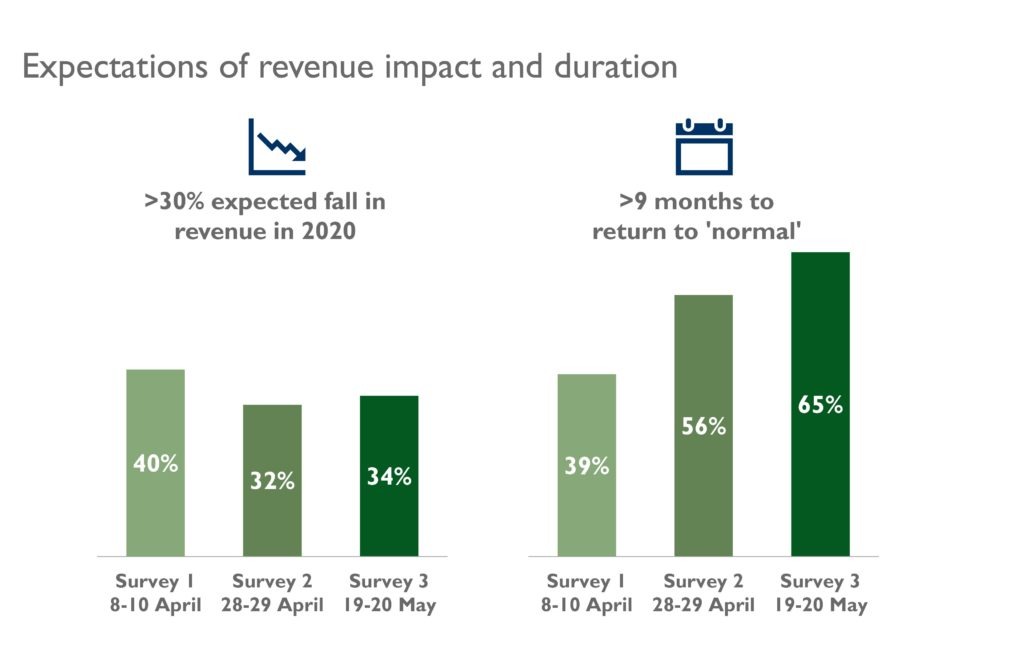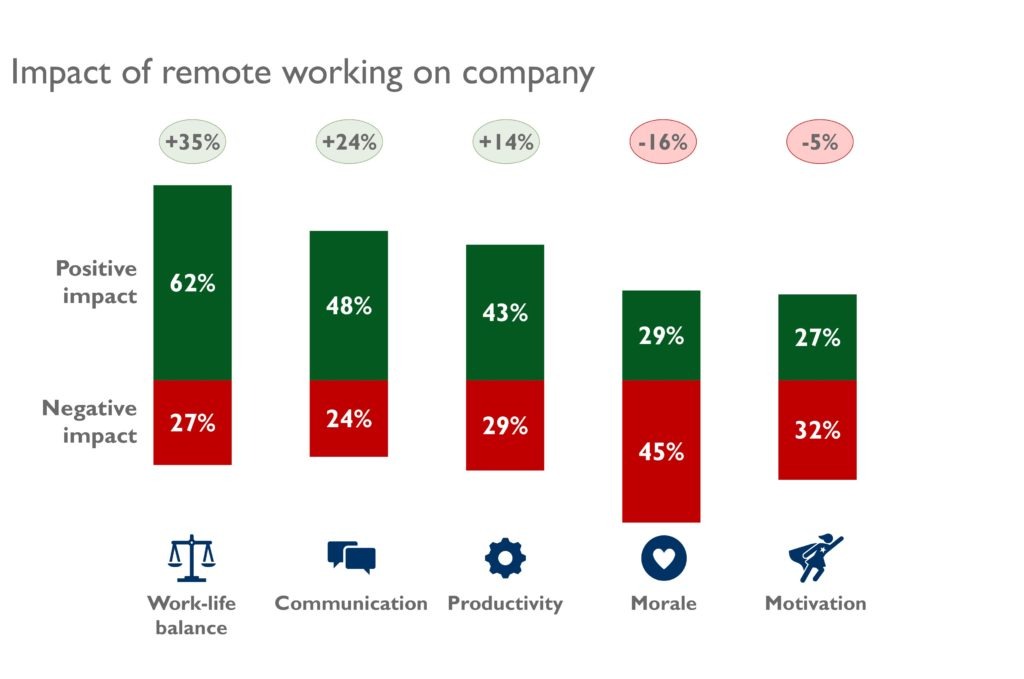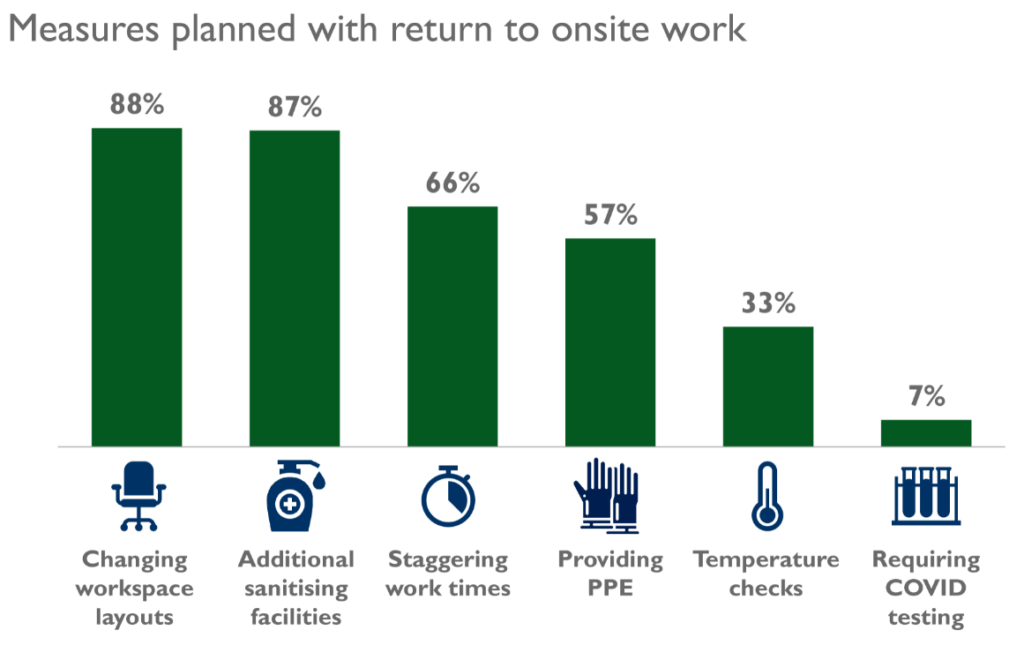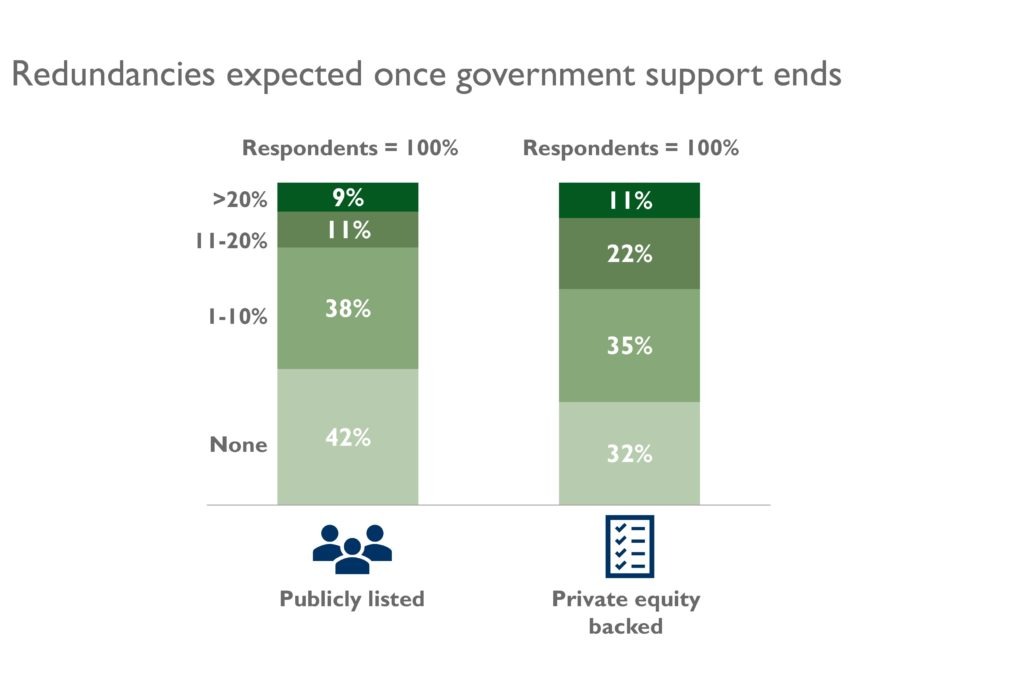Managing the Covid-19 crisis: Changing ways of working
As businesses begin to work their way towards a “new normal,” Eden McCallum’s third Covid-19 survey asked c. 200 business leaders for their views on the impact of the crisis and how they are adapting their operations for the future.
Expectations regarding the duration of disruption from Covid-19 continue to worsen, with 65% of business leaders now anticipating that a return to “normality” will take more than nine months, compared to the 39% who held that view in early April. On the other hand, the expected fall in revenue has stabilised, with 34% anticipating a 30%-plus fall in revenue, similar to the result three weeks ago and lower than six weeks ago (40%).
Despite the severe shock of the Covid-19 crisis, many respondents feel that their businesses have adapted well to remote working. Over half say that 80% or more of their business is working remotely, with perhaps surprisingly beneficial impacts amidst the change: There was a net positive 35% score* on work-life balance, 24% net positive on collaboration, and 14% net positive on productivity.
However, remote working has taken a toll on motivation (minus 5% net score) and morale (minus 16%). Interestingly, business leaders are more concerned about the impact on morale for their business and colleagues (minus 16%) than themselves (minus 4%).
Individual circumstances have a big influence on respondents’ personal experience of remote working, with those living with children at home less likely to have experienced a positive impact on productivity or work-life balance and people with commutes <30 minutes less likely to be feeling a positive impact on their levels of motivation, collaboration and morale. Conversely, those in adult-only households and with longer commutes have found remote working beneficial on every dimension.
There is also a gender divide in remote working, with women saying they are seeing more benefits in terms of work-life balance than men (45% net positive score vs 31%), while men seem to be enjoying a greater boost to productivity than women (34% net positive for men vs 15% for women) and a more positive impact on morale (plus 3% for men vs minus 15% for women).
As lockdown begins to ease, a large majority of businesses will either be encouraging staff to continue working from home (65%) or will allow individuals to choose what approach suits them best (28%). However, most businesses are still putting preparatory measures in place for employees who will return to work onsite, including changing workspace layouts (88%), staggering work times (66%) and providing personal protective equipment (PPE) for staff (57%).
Dena McCallum, founding partner of the firm, says that after the shock of lockdown, businesses are finding their own ways to keep trading and survive. “Our latest survey reflects the adaptability that successful businesses have always had to show,” she says, “and that agility is being displayed in the most testing of circumstances. The encouraging signs are that businesses are shifting their operating models to deal with this new reality,” she adds.
That reality will involve taking some tough decisions. Around 60% of the survey respondents are considering making redundancies once government support ends; that number increases towards 70% for private equity backed companies.
There will undoubtedly be more changes to make and further lessons to learn as businesses steer a path out of the Covid-19 crisis.
To view the full results, please click here.
We will be launching another survey in a few weeks, looking deeper into the permanent changes businesses are making in response to the crisis, so please follow us to remain updated.
*net score = total % respondents scoring impact (very) positive minus total % respondents scoring impact (very) negative





